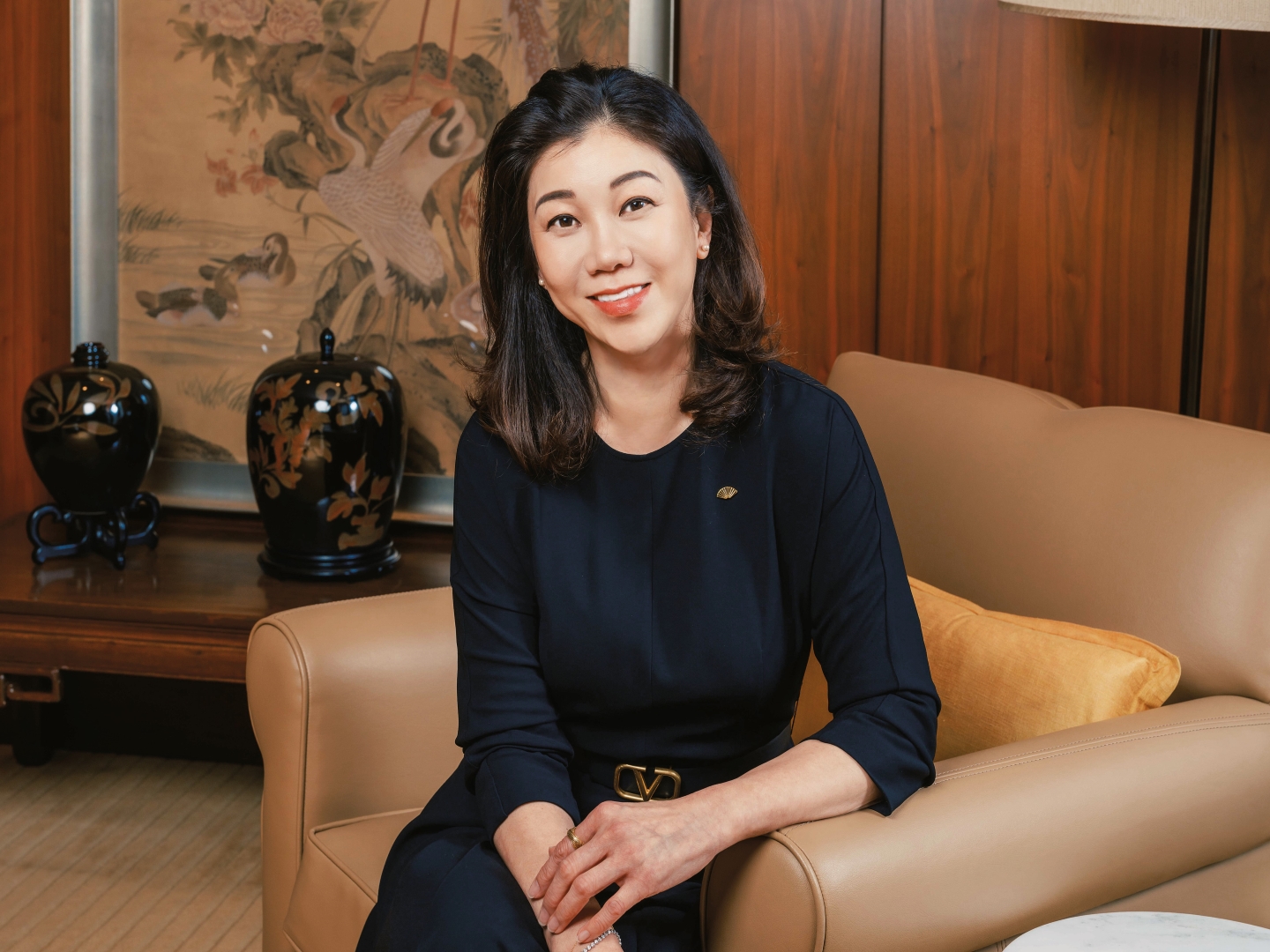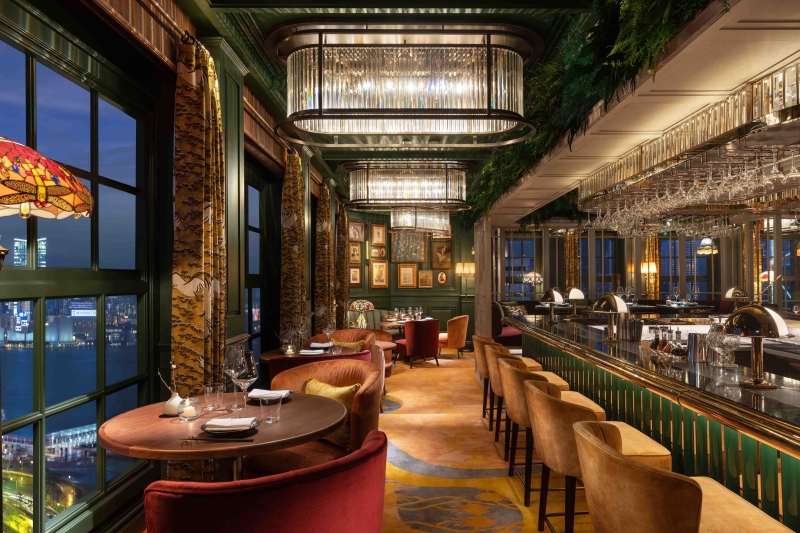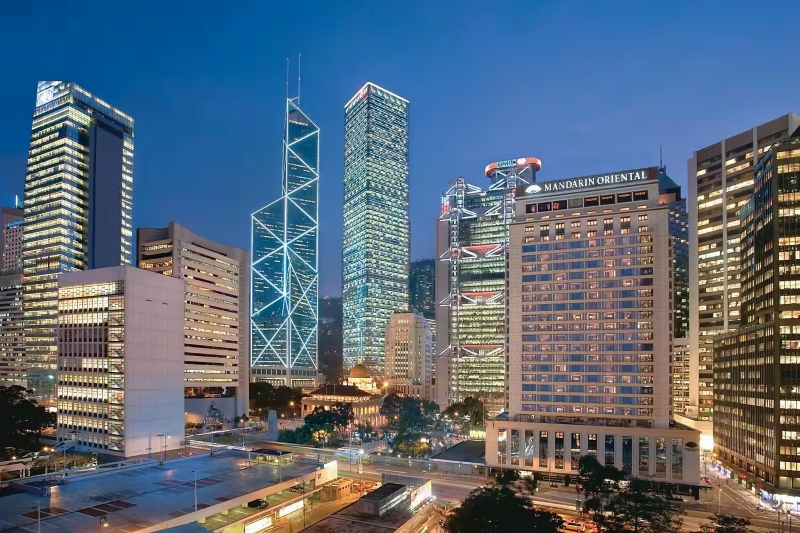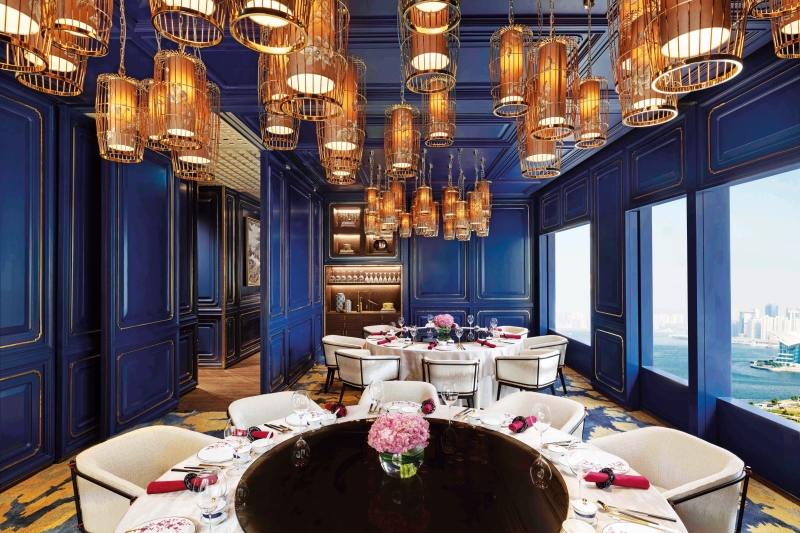
Tan: The hotel industry is one that requires passion, an open mind and tenacity. Otherwise, you’ll be dragging your feet to work. (All photos: Mandarin Oriental Hong Kong)
Perched on the 25th floor of Mandarin Oriental Hong Kong, the hotel’s one-Michelin-starred restaurant Man Wah is booked to the brim on a weekday afternoon. This opulent cerulean dining room has seen the likes of Tan Sri Michelle Yeoh, Chow Yun-fat and Donnie Yen tucking into its famous dim sum and Cantonese dishes. Sitting beside the window, director of commercial strategy Irene Tan nurses her snow chrysanthemum tea while taking in the city skyline and iconic Victoria Harbour.
The wheel has come full circle for Tan, who was part of the pre-opening team for Mandarin Oriental Kuala Lumpur. An opportunity led her to Beijing, where she cut her professional teeth at The Peninsula, China World Summit Wing and Four Seasons before receiving an offer to return, but to the company’s flagship.
“In those days, we always looked up to MO Hong Kong. If you had the opportunity to transfer, you were considered the crème de la crème of the company. So for me, it’s a privilege to be able to come back to Mandarin Oriental as the director of commercial strategy,” she says.
The iconic hotel, which has hosted some of the most respected celebrities and dignitaries around the world, is among the oldest guards in the city. “Last year, we celebrated our 60th anniversary and are continuing the festivities this year. Our speakeasy bar, Aubrey — No 17 on Asia’s 50 best — will be transformed every Friday to what we call Aubrey After Dark.”
This new programme pays homage to Hong Kong’s vibrant nightlife, which emerged around the same time as the hotel’s opening in the 1960s. “People really don’t do clubbing like we used to! Back then, places like Kee Club and JJ’s at Grand Hyatt were well known. Singaporean and Malaysian party-goers would fly to Hong Kong just to be seen in Kee Club. They closed about 10 years ago but we are working with its founder and marketing person to bring back the nostalgic experience.”
The mezzanine floor, which houses the Clipper Lounge and Café Causette, will also undergo renovations. Million-dollar business deals and contracts have been made at these very locations. “We’re strategically located in the Wall Street of Asia. Our neighbours are HSBC, Standard Chartered, JP Morgan, you name it. And during lunchtime, you will see the movers and shakers of Hong Kong, the bankers and hedge fund managers in our restaurants. When the stock market is good, you see all the items on the menu being ordered. Our hotel is really the beating heart of Central.”
the-aubrey-main-bar-and-drawing-room.jpg

This also means hoteliers are quick to detect a change in pulse. “Before I started working here, I always visited for business trips. I saw it in the 1980s and 1990s: There were more British and European expatriates working in Hong Kong because it was like a springboard to Asia. All the high-ranking positions were occupied by Westerners, but things have changed over the last two decades.
“Hong Kong is now more internalised. Therefore, a lot of the positions have been taken up by Asians who understand the nuances of China.
“I don’t read or write the language, but learnt to speak it when I was in Beijing and I think that prepared me for the job in Hong Kong too. Close to 80% of arrivals at the city are from China. For hotels, it’s about 40%. The experience I acquired in Beijing really helped me promote MO to our largest source market.”
But as happened in many other cities, the pandemic blighted the industry. “It really wiped out a lot of hoteliers and many who left did not come back. So the talent pool is depleted now. It’s very difficult to find people. Also, the younger generation don’t want to serve people. The hotel industry is one that requires passion, an open mind and tenacity. Otherwise, you’ll be dragging your feet to work.”
hong-kong-exterior-view-night-04.jpg

Keeping one’s finger on the pulse is no easy feat either. “It’s not just about accommodation any more. F&B plays an important role and restaurants are big revenue generators. You really need to know what the latest trends are and understand the food and bar scene to stay on top of the market.”
After almost a decade in Hong Kong, Tan has settled in comfortably and knows all the nooks and crannies like the back of her hand.
“One good thing about Hong Kong is the wine is very affordable,” she chuckles. “I always tell people to drink wine when they come. The shop I like to go to near my place is called Premier Cru. You can also go to Corks, which is close to the Man Mo Temple.”
When friends visit, Tan usually takes them to have street food for something local. “If they want high-end, good Cantonese dim sum, I always bring them here (Man Wah). By the way, our Beijing duck is very good. Another favourite of mine is China Club, designed by the late Sir David Tang. Our hotel is a member, so we can reserve a table for you if you’re a guest.”
She tries to make it back to KL at least twice a year. “Chinese New Year is a must because my mum wants to see me, but personally I go back for the Chinese New Year cookies! The way they celebrate here is quite different compared to back home. And let’s just say when it comes to food, you can’t beat Malaysia, lah!”
This article first appeared on June 24, 2024 in The Edge Malaysia's 'Loong Report', which commemorates 50 years of Malaysia-China relations.



